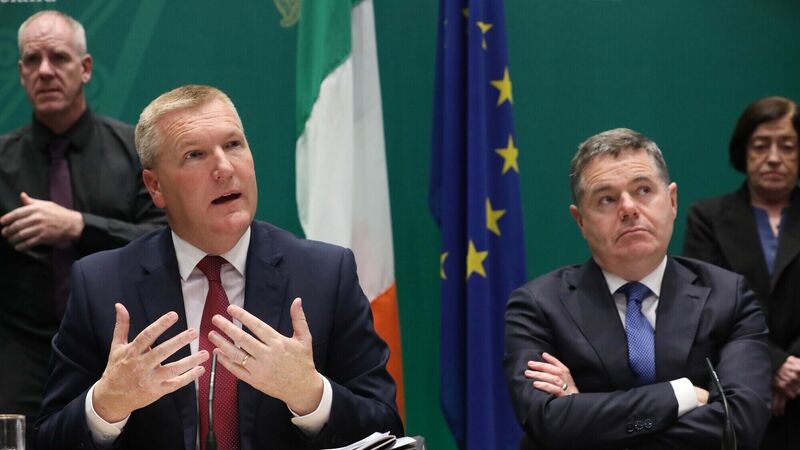PAYE workers will benefit from changes to tax bands and USC

Finance Minister Michael McGrath and Public Expenditure Minister Paschal Donohoe fielding questions at a press conference in Government Buildings after their Budget 2014 statements in Dáil Éireann.














